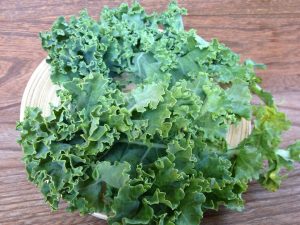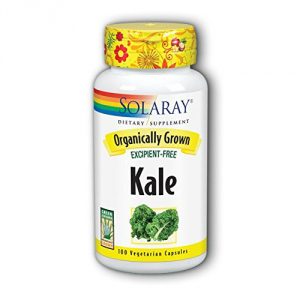Kale belongs to the cabbage family, and known as “the queen of greens“. Kale is nutritious vegetables on the globe that is beneficial for skin, hair and strong bones, helps with digestion and also reduces the risk for heart disease. It helps manage blood glucose levels, reduces blood pressure and risk of cancer, and also reduces the risk of asthma.
Kale contains various important vitamins and minerals such as vitamin A, C and K and minerals such as copper, potassium, iron, manganese and phosphorus. A cup of kale has just 40 calories, 3 grams of protein and more vitamin C than spinach.
Health Benefits of Kale for Different Diseases
Diabetes
According to studies, people with Type 1 diabetes if consuming fiber rich foods have lower blood glucose levels and in Type 2 diabetes, have improved blood sugar levels, lipids and insulin levels. According to the Dietary Guidelines for Americans, one cup fresh kale gives approx 2.6 grams of fiber and suggests 21-25 gram/day for women and 30-38 gram/day for men.
Kale has antioxidant identified as an alpha-lipoic. Studies have been conducted on alpha-lipoic acid, and their results have shown a reduction in peripheral neuropathy or autonomic neuropathy in people with Type 2 diabetes.
Heart Disease
Kale contains various nutrients such as fiber, potassium, vitamin C and B6, all help manage hearth health. According to research, people with diabetes should make changes in their diet that mean increase the consumption of potassium along with a reduction in sodium intake to decrease the risk of cardiovascular disease. A study shows that high amount of potassium intake (4069 mg of potassium per day) reduces the risk of death from heart disease by 49%. In short, High potassium intake is linked with lower risk of stroke, prevents against the reduction of muscle mass, and also lowers the formation of kidney stones.
Cancer
Kale is a green vegetable which contains chlorophyll which has the effective impact that blocks the carcinogenic effects of heterocyclic amines, developed when grilling foods at high temperature.
Other Benefits
- Improve bone health. Less consumption of vitamin K have been linked with great risk of bone breakage. Thus, intake of vitamin K is important for health such as it enhances calcium absorption helps lower the urinary excretion of calcium and works like a modifier of bone matrix proteins.
- Digestion. Kale is a great source of fiber and water content that help prevent constipation and improve a healthy digestive tract.
- Skin and hair. Vitamin A is important for sebum production to keep hair moisturized and essential for the growth of body tissue also includes skin and hair. Kale is rich in vitamin A and C and iron that manage the collagen, responsible for providing structure to skin and hair.
Due to its beneficial impacts, people with diabetes can also add it into their diet. It can be added to salads, sandwiches, soups or casseroles.
References
http://www.whfoods.com/genpage.php?tname=foodspice&dbid=38
https://authoritynutrition.com/10-proven-benefits-of-kale/
Related Products




Leave a Reply